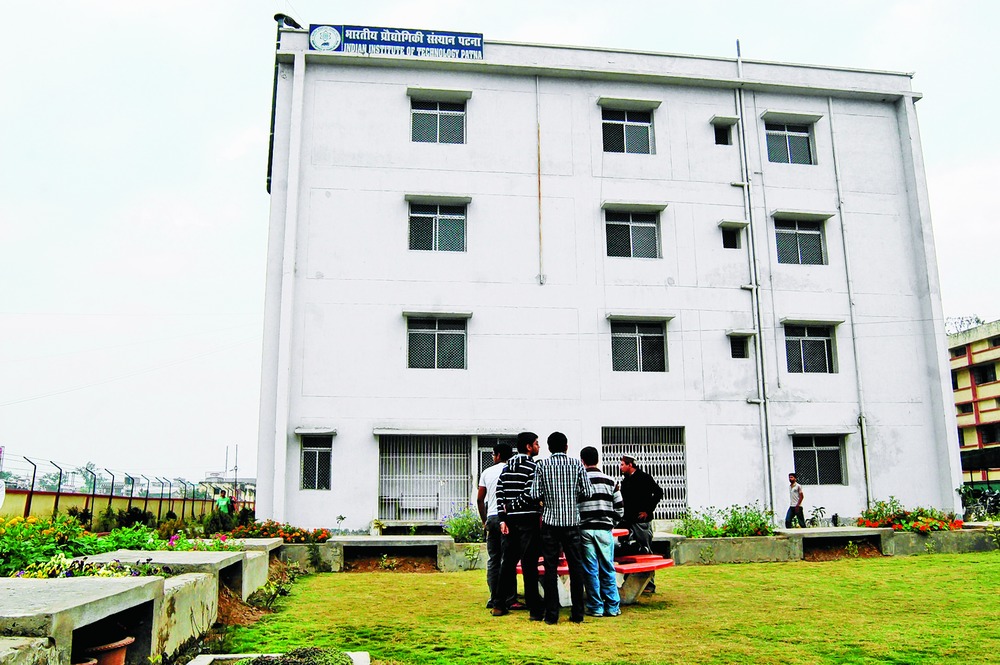
IIT-Patna, running without a dedicated head for almost a year, got a director in just 10 minutes.
Prof. Pushpak Bhattacharyya of IIT-Bombay would be the director of the premier institution in Patna. He is one of the three directors selected recently for equal number of IITs.
Going by the "quick" selection process, an IIT-Kanpur professor has wondered whether the suitability of an IIT director can be decided in just 10 minutes.
Prof. Dheeraj Sanghi's question is based on a claim that interviews of 36 candidates for three IIT director positions were taken in six hours.
Last month, panels headed by HRD minister Smriti Irani had completed all the interviews for the post of directors of IIT-Patna, IIT-Bhubaneswar and IIT-Ropar in six hours on a Sunday, according to ministry officials.
Sanghi, a professor of computer science, said the pace at which the interviews were conducted raised questions.
"In 10 minutes, the selection panel can choose somebody if they know him from the past," Sanghi told The Telegraph over phone. "If the panel members do not know a person, that person has little chance no matter how competent he is."
Late Thursday night, it was learnt that Prof. Pushpak Bhattacharyya of IIT-Bombay had been appointed director of IIT-Patna. Prof. Sarit Kumar Das of IIT-Madras will be the director of IIT-Ropar and Prof. R.V. Raja Kumar of IIT-Kharagpur that of IIT Bhubaneswar.
Neither Sanghi nor anyone else has cast any aspersions on the three professors or questioned their competence.
Smriti declined to take questions from this newspaper. "I am not giving you an interview," the minister said.
Prof. M. Anandakrishnan, the IIT-Kanpur chairman and a member of one of the selection panels, declined comment. "Now, the selection is over. I do not want to make any comment. Let us not try to make a new controversy," he said.
Sanghi spoke to this newspaper before the final choices were known.
Sanghi said the process of selecting an academic leader of an institution should aim at assessing a candidate's leadership qualities to take the institution to international levels in teaching, research, industry linkage, etc.
The process in American universities is more rigorous, with the board shortlisting three or four candidates after studying their bio-data and references. The candidates then have to spend a day or two with the board's trustees and other stakeholders and present their vision for the institution.
Sanghi said he had had to go through a similar process before he was selected director of a private institution in Rajasthan in 2008.
He drew a contrast between the rapid selection of directors in six hours and the long-drawn selection of students for BTech courses through a series of tests. A student has to clear the Class XII board exam with 75 per cent marks or has to be in the top 20 percentile in the board.
The board exam pattern varies among boards. Under the Central Board of Secondary Education, students have to take five papers of three hours' duration each. The JEE-Main and JEE-Advanced entrance tests are of three and six hours' duration, respectively.
When the HRD minister held the interviews for IIT director last month, a candidate was given five minutes to make a short presentation and another five to take questions, according to Sanghi.
Five minutes was too short a time for a candidate to make a presentation on his vision for an institution, Sanghi said. Ideally, the candidate and members of the search panel should visit an institution to understand its requirements, he added.
"The requirement of one institution will vary from that of another. The selection panel members have a general impression about the functioning of institutions. That is not enough," he said.
Sanghi wrote about the issue in his blog, dsangh.blogspot.in, recently. He was equally critical about the procedure followed by the UPA regime, when interviews were a little longer than 10 minutes.
The IIT directors' selection got drawn into a controversy after IIT-Bombay chairman Anil Kakodkar, who was on all three selection panels, skipped the March 22 interviews.
In January and February, the members of the three panels - minus Smriti - had selected 13 candidates for a final interview. The final interview was held on February 16 by the full panel but no candidate was found suitable. So, the minister decided to invite all the candidates for a fresh interview on March 22.
Apparently unhappy that the first interview had been scrapped, Kakodkar resigned as IIT-Bombay chairman. But the HRD ministry requested him to stay on till his tenure gets over in May this year.
Sanghi said the IIMs had a better system of director selection - the governing board selects three names and sends them to the HRD ministry, which picks one and forwards it to the appointments committee of the cabinet for approval.
But in the case of the IITs, the search panel is set up under the chairpersonship of the HRD minister. It includes the IIT chairperson, a representative of the IIT council and two other experts.
The IIT-Patna was established on August 6, 2008. For the first year, IIT-Guwahati was the mentor institution of IIT-Patna and so IIT-Guwahati director Gautam Barua was the in-charge director of the institution. In July 2009, Anil Kumar Bhowmick, a professor at IIT-Kharagpur was appointed the first full-term director of IIT-Patna. His term expired on July 18, 2014. After Bhowmick's retirement, IIT-Kharagpur director Partha Pratim Chakrabarti was given the additional charge of IIT-Patna.










